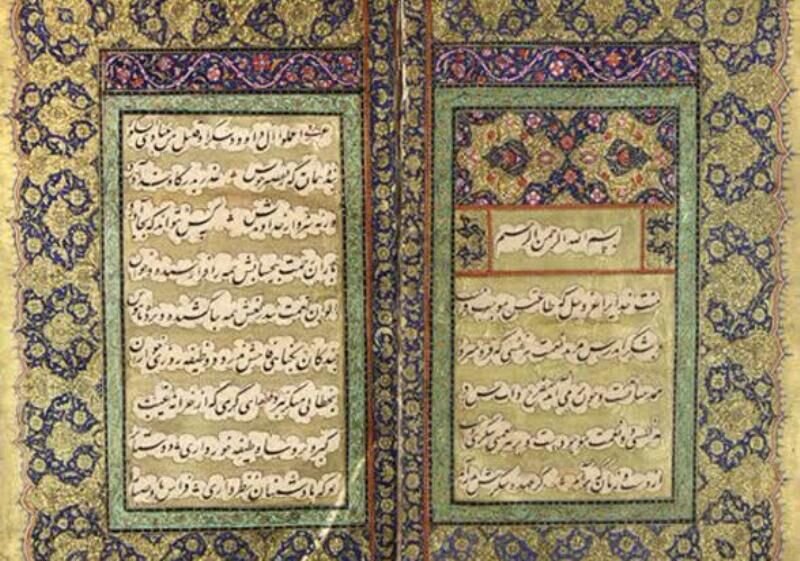Tens of manuscripts on Sadi poetry being kept at Mashhad museum

TEHRAN – A total of 300 manuscript books on Sadi poetry are being kept at the Astan Quds Razavi Museum, a vast cultural heritage exhibition located in the holy shrine complex of Imam Reza (AS) in Mashhad, northeast Iran.
"300 copies of manuscript books containing the works of the Persian poet Sadi is currently being kept at the Astan Quds Razavi Museum," an official with the museum said on Thursday, IRNA reported.
The official made the remakes on the occasion of the Sadi National Day, adding "the oldest of these manuscripts is one dated only 70 years after Sadi's death."
Abu-Muhammad Muslih al-Din bin Abdallah Shirazi, known by his pen-name Sadi, was one of the major Persian poets of the medieval period. Sadi is known as a mystic and metaphysician in the history of Persian literature. He is recognized for the quality of his writings and the depth of his social and moral thoughts. The ancient scholar has gained worldwide fame, not only in the Persian-speaking countries but in western societies, with his poems being quoted in a multitude of sources.
Sadi’s best-known masterpieces are Bustan (The Orchard) completed in 1257 and Gulistan (The Flower Garden) in 1258. Bustan, as his best-known work, was completed in 1257. It includes 4,000 verses in 183 stories about the virtues such as justice, kindness, love, modesty, liberality, generosity, satisfaction, and happiness, and the ecstatic practices of dervishes addressing all people to have a better and happier life.
A year after the completion of Bustan, Sadi composed his masterpiece Gulistan. Gulistan, comprised of 8 chapters is mainly in prose. The book widely addresses kings’ morality, dervishes’ behavior, benefits of contentment, silence and talking in proper time, love and youthfulness, weakness in old age, and education. Sadi attempts to advise people to live freely and to improve the quality of their lives in Gulistan. It is one of the most effective books in prose in Persian literature.
Sadi’s other works include Ghazals (love poems or Lyrics; sonnets), qasidas (longer mono-rhyme poems or Odes), quatrains, and short pieces in prose in both Persian and Arabic. He is known as one of the greatest ghazal-writers of Persian poetry besides Hafiz.
AFM
